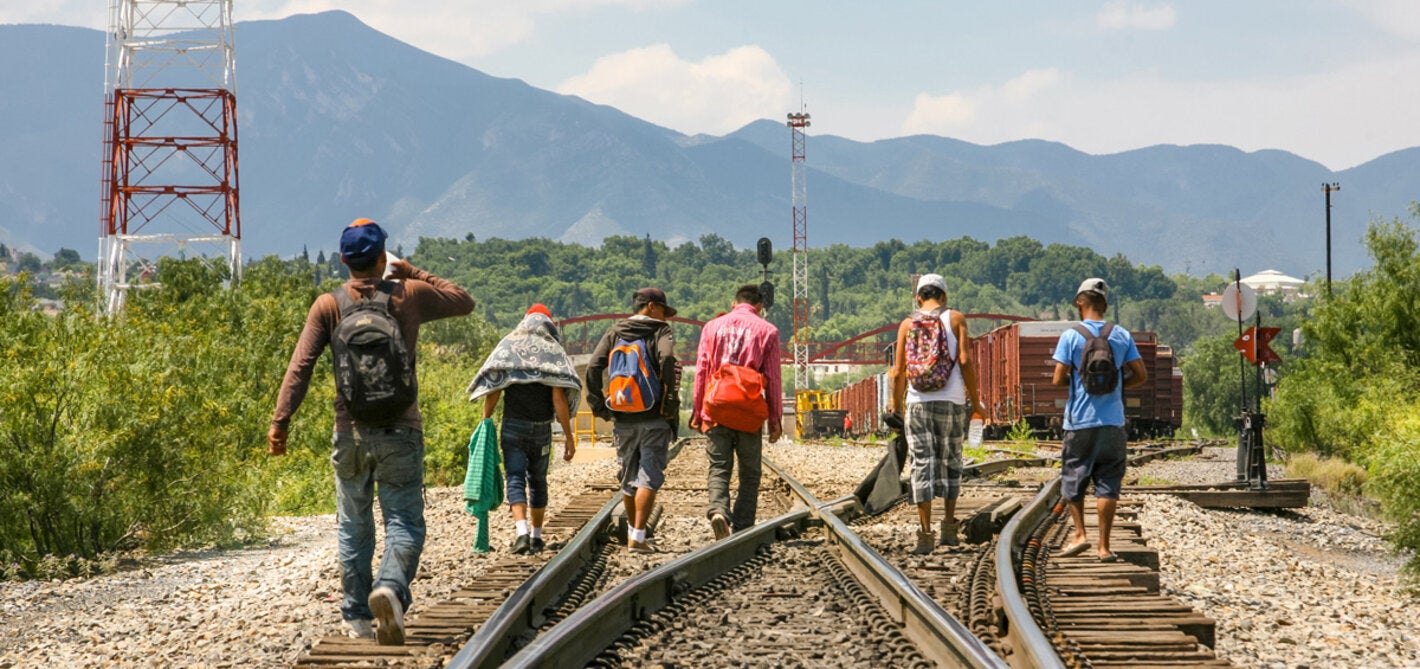
Washington, D.C., 26 April 2019 (PAHO/WHO) –The Pan American Health Organization (PAHO) has published a guidance document on migration and health that suggests five areas of action countries should take top improve the health of migrants and the populations that receive them.
The five areas of action are: strengthening surveillance, information management and monitoring; improving access to health services for the migrant and host populations; improving communication and information exchange to counter xenophobia, stigma and discrimination; strengthening partnerships, networks and multicountry frameworks to understand the status and promote and protect the health of migrants; and adapting policies, programs and legal frameworks to promote and protect the health and well-being of migrants.
PAHO also created a web portal with information and resources on the health of migrants in the Americas and other regions, and where countries can exchange information, best practices, lessons learned and national health plans for improving migrant health, among other support documents.
The guidance and web portal are both part of a commitment PAHO made in November 2018 in response to a series of priority actions identified by ministries of health from throughout the Americas for improving the health system response to mass migrations that have been occurring in the region.
“We need to have an emergency short-term response, with medium- and long-term planning that addresses the health needs of migrants, said PAHO Assistant Director Jarbas Barbosa. “It is nearly impossible to think of an isolated response to addressing health and migration. We need to work in a collective way to address the health needs of migrants and of the populations that receive them, and to protect our region’s achievements.”
The phenomenon of mass migration has intensified in recent years in the Americas, in particular from Central America toward Mexico and the United States, and from Venezuela toward other South American countries and the Caribbean.
Countries in the Americas have demonstrated regional solidarity in providing support for migrants, but the high demand for health services coupled with a lack of resources and the re-emergence of previously eliminated diseases such as measles has put pressure on health care systems to meet the health needs of migrants while also meeting the needs of local populations.
Five lines of action for migrant health
PAHO proposes a series of interventions aimed at integrating migrant health needs into national policies, strategies and programs. It also seeks to bridge the short-term emergency response and medium- to long-term actions for integrating the health needs of the migrant population while ensuring the sustainability of actions currently being implemented.
The five lines of action and proposed interventions are:
- Strengthen health surveillance, information management and monitoring to ensure that health systems in migrant-receiving countries are able to adapt and implement health interventions that meet the specific needs of migrants.
- Improve access to health services for the migrant and host population by identifying and eliminating or mitigating specific barriers these groups face in access to services.
- Improve communication and information exchange to counter xenophobia, stigma and discrimination and to promote a culture of inclusion and solidarity as well as information exchange between countries.
- Strengthen partnerships, networks and multicountry frameworks to promote and protect the health of migrants effectively and efficiently, involving actors from different sectors, agencies and countries.
- Adapt policies, programs and legal frameworks to promote and protect the health and well-being of migrants, by including migrant health in local and national policies and programs and by developing or modifying legal frameworks to address migrants’ rights to the highest attainable standards of physical and mental health, in accordance with international human rights obligations.
In the November 2018 meeting at PAHO headquarters in Washington, D.C., ministers of health discussed short- and medium-term actions in areas including surveillance, epidemiology, outbreak preparedness and prevention, and guaranteed access to health systems and services, among others. In addition to its technical guidance and web portal, PAHO also committed to developing a regional plan of action addressing the health needs of migrants, an initiative that will be developed in consultation with PAHO member states.



